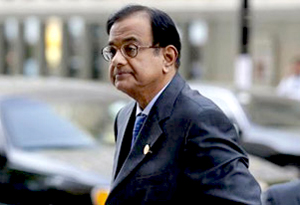 New Delhi, Feb 17: Finance Minister P Chidambaram will present the interim budget for 2014-15 in Parliament today.
New Delhi, Feb 17: Finance Minister P Chidambaram will present the interim budget for 2014-15 in Parliament today.
Along with the budget, the Finance Minister will present a vote-on-account to seek Parliament's sanction for spending till July.
Also, unlike a regular budget, the interim one does not have any new proposal on the revenue side -- that is, no taxation measures are proposed and status quo is maintained. Such a budget only lists an estimate of the income generated and the expenditure incurred during the previous year, as also the likely expenses during the period for which the vote on account is sought. However there may be some sops for the common man and sectors that need help.
Government has indicated that it may tinker with the excise duties and service tax rates in the interim budget in an apparent bid to boost economy but may not pursue key reforms legislations due to lack of political consensus.
Earlier, Chidambaram had indicated he may tweak excise duties and service tax rates in the interim budget in an apparent bid to boost the economy, but he may not pursue key reform legislation due to lack of political consensus.
It would be interesting to see if Chidambaram continues with the super-rich tax in 2014-15 as well, but indications are he may choose not to since it would need amendment of the law.
The full Budget for 2014-15 will be presented by the new government in June-July.
Chidambaram may explain why economic growth slowed to a decade's low of 4.5 percent in 2012-13 and outline steps taken by the government to put India back on a high-growth trajectory.






Comments
Add new comment